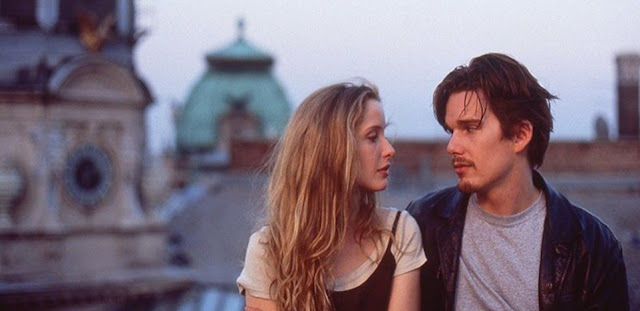#Urdu- A Sufi Celebration Of Life #BlogChatterEbookCarnival
Book Blurb:
"This book is a Sufi celebration — a celebration of love, humanity, and values that seem to be losing their sheen.Simple, relatable and everyday life lessons are woven around equally simple and easy to use Urdu words that can easily become a part of the reader’s day to day lingo.And since Urdu is a language of the poets and a home for some of the finest poetry/couplets (ghazal, nazm, shayari and so on), these pieces are riddled with her most favorite pieces of Urdu poetry or shayaris, many of which formed the background score of her childhood that echoed with her mother’s favorite Jagjit Singh’s ghazals."
My Review:
I love untranslatable words. I dig up the internet for them- search nooks and corners of ScoopWhoop, ThoughtCatalog, and Instagram for these. I love the way these words conquer over my being as I get deeply immersed in their meaning. Never thought there were such words in Urdu as well, a language I have grown to love in recent years though Saayaris, Pak TV series and telefilms. Through this book, I had the privilege to bask in the exquisite beauty of these words and all that they encompass.
The words are such exquisite medley to the ears. I spoke out loud each of the words, solely to enjoy the beauty of articulation. Urdu is indeed a linguistic paradise for lovers and poets alike. Volumes can be said through brevity. And the chapters in this compilation are like a biography of the words. And so endearing, so soothing, so pleasing is the read! I must mention, it is a reader’s delight.
For the very first word ‘Aagaaz’, she creates a very good description. A beautiful word. “A phonetic joy. It means a beginning. It is a concept—a powerful symbol of a start of something worthwhile and momentous—a journey literal, metaphorical that can change your life.”
“Bandagi- a spiritual high, a joy unmatched, unparalleled. It exists beyond romance and religion. A moment of pure Bandagi is sometimes enough to surpass a lifetime of austerity and devotion.”
“Chasm-e-Baddoor—it is appreciation, and respect, and concern and just the right amount of protectiveness, all wrapped in together like a poem—in one single phrase.”
I loved the chapter ‘Dard- Of Heartbreaks, Heartaches, and Empathy’. Dard has romance and intrigue. The fact is tragedies have always had an appeal. Recently I am more into novels and movies of this genre(The Reader, The Danish Girl). And ‘Humdard’ is a beautiful lesson in empathy—a call for us to realize that we are all in this together.
I find myself in a sweet, steady death by drowning in this cornucopia of words.
“Mujhe Sambhalne Me Itni Ehtiyaat Na KarKahin Bikhar Na Jaoon Mein Teri Hifajat Me”—Saleem Kausar
It translates to—“Don’t be so cautious in handling/protecting/preserving me. Maybe your excessive care would be the cause of my shatter.” I have been practicing ending my WhatsApp conversations nowadays with ‘ehtiyaat rakhein’ instead of a mere ‘take care’.
While reading this book, that mushy feeling was persistent. That feeling which you get while watching a romantic movie or reading a poetry book while it’s raining outside. When you grow aware of your own rhythmic breath and your heartbeat slowly and steadily. Like being lulled to a peaceful calm. I was awed by the descriptions of the entire world that a single word could encompass. Wonder, life, relations, political turbulence and our society—all brought in the context.
The author has included few stanzas of Urdu by famous poets, along with their translations and a bit about the context and how the lines hold true in today’s world. Artistic expressions in a world where art is much needed, much sought after but is also the most oppressed. Some of the couplets made me nostalgic- scenes from my own life flashed through my mind while I read them.
Rightly said, “A word needs fursat to make sense, and to let us access the infinite joys hidden in its depths.”
“Justju is the ends, Jazba is the means. And in that beautiful, delicate, symbolic balance is the story of our lives.”
And there is only so much I can tell about this book- every page has several mesmerizing quotable sentences, couplets, and ruminations.
Runjhun Noopur is a lawyer who doesn’t do law. Instead, she spends her time staring at the Moon and writing about life, happiness and everything in between. When the Moon is unavailable, she can be found moonlighting as an entrepreneur, a happiness coach and co-founder of a leadership and happiness training initiative called Creative Precepts. A prolific blogger, she has a fast growing blog on Medium. She is also a contributor to the Huffington Post. Her other writing credits include the Times of India, Hinduism Today, India Currents, Eternal Solutions, Thought Catalog, Chicken Soup for the Indian Soul—Book of Miracles (2012) and the Best of the Speaking Tree collection (Vol. IV). She was one of 10 writers who were chosen for AIB’s First Draft Writers’ Residency Program 2016.









Comments
Post a Comment